Over the past four years, Welsh rock band Panic Room have established a strong reputation both on record and as a live band. Their dynamic mix of rock, pop, metal, folk and jazz manages to combine all those varied influences into one coherent sound.
Their self-released 2008 début Visionary Position cast around in many different directions: lengthy atmospheric epics jostling with simpler, more direct songs. The follow up, 2010's Satellite, took one of those directions and ran with it, focusing on the sort of material that worked well live: shorter songs with a mix of punchy hard rockers and big soaring ballads.

With some amazing musicianship and an award-winning vocalist in frontwoman Anne-Marie Helder, they've seemed poised for a breakthrough for some time, and their third album Skin might just be the one that does it.
distorted guitar sounds come as a surprise
The album starts with a bang with "Song for Tomorrow". The moody intro, crunching hard rock guitars, and soaring vocals pack many of the best elements of Panic Room's music into one six minute song. The unexpectedly dirty and distorted guitar sounds come as a surprise compared with the cleaner tones adopted in the past, and there's a great moment where the rest of the band drop out leaving Anne-Marie's vocal accompanied by Gavin Griffiths tribal-sounding drumming.
After that dramatic opening, "Chameleon" changes track completely, a laid-back shimmering jazz-flavoured number lead by Jon Edward's piano. "Screens" is quite different again. Opening with the string quartet that features heavily throughout the album, it then turns into a dynamic funk-rocker built around a killer synth riff. Possibly showing the influence of new bassist Yatim Halimi, this song seems certain to become a live favourite.
"Chances" is a semi-acoustic rocker, with heartfelt lyrics and the sort of vocal melody that rapidly gets lodged in the brain; Paul Davies plays some great shredding flamenco-style guitar on this one. The slow-burning "Tightrope Walker" takes on a brooding eastern flavour ending with some great electric piano. A string quartet add colour to both these numbers, but for "Promises" they become a lead instrument. Those strings at the start give the feel of early ELO, but the song soon turns into something harder-edged and altogether more intense.
the feel of early ELO
Then the album takes a breather with a couple of quieter numbers. First the stripped back intimacy of "Velvet and Stars", with Helder's vocals accompanied just by guitar, then delightfully light and airy "Freefalling". Both numbers have something of the feel of parts of her acoustic 2006 solo EP The Contact.
The album comes to a very powerful conclusion with the three closing numbers. First the title track, a ballad with emotional soaring vocals and some wonderful piano arpeggios, and possibly the high spot of the entire album. Then the hard rock of "Hiding the world", heaviest number on the album, shades of Led Zeppelin fronted by Kate Bush, with the strings adding a "Kashmir" vibe at the end. Finally the epic album closer "Nocturnal", ending the album in a similar fashion to the title track of "Satellite".
shades of Led Zeppelin fronted by Kate Bush, with the strings adding a "Kashmir" vibe
This is an extremely varied record, taking a big wall of sound approach in places and a pared-back simplicity in others. Yet for all the variety, the whole thing hangs together as a coherent album, and despite a running time of over an hour, there's no real filler. True, some songs are far more immediate than others, but on repeated listens every song reveals its own strengths.
It's less a radical change in direction as a logical progression from what the band have done before. True, the production is more ambitious, and there's something of the multi-layered approach of their début, especially with the extensive use of the string quartet. As with Satellite, it's all very song-focussed. The band are virtuoso musicians, but there's never any unnecessary instrumental showboating; the solos kept short and sweet according to the needs of the song. If anything it's Helder's remarkable voice that's the most significant lead instrument, hitting the sweet spot between precision and emotion that makes the difference between a good vocalist and a great one.
For years, Panic Room have been one of the British rock scene's best-kept secrets. With "Skin", their strongest and most assured album to date, they've delivered a record that deserves to be heard by a far wider audience.
On Esoteric Antenna records, 26th June


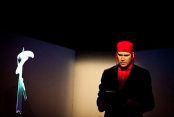

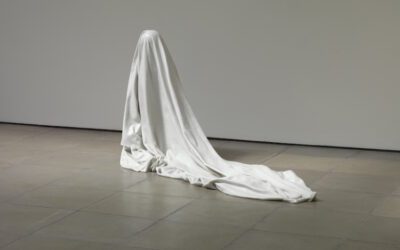
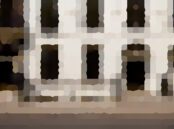
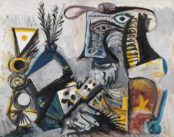
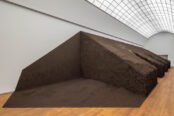






![L'Esprit comique [Der komische Geist], René Magritte, 1928. Courtesy Sammlung Ulla und Heiner Pietzsch, Berlin © 2025, ProLitteris, Zurich Photo Credit: Jochen Littkemann, Berlin](https://b276103.smushcdn.com/276103/wp-content/uploads/2025/07/ew11_0098489_2025-05-12_web-140x174.jpg?lossy=1&strip=0&webp=1)

